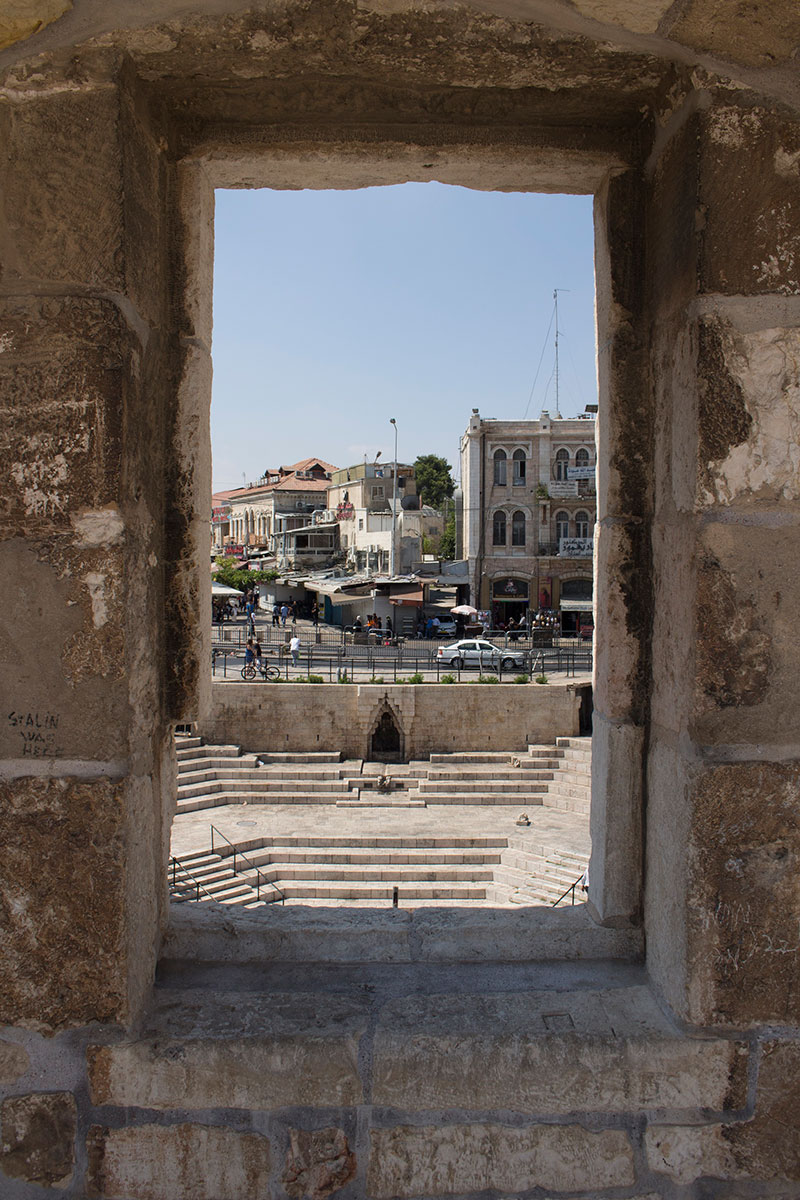Countries and societies tend to measure key indicators to guide national policy and understand societal trends and moods. Such measurements may range from an index for happiness to statistics on poverty and unemployment. Planning is indescribably tied to such measurements, and the discipline that reads into the results of such indices and ratings should exist as a norm and not the exception. In the Palestinian context, all measurements are important, yet we continue to focus on unemployment and the popularity of political parties; we even identify the 15 most active companies traded on the Palestine Stock Exchange as The Al-Quds Index. Obviously, Jerusalem is the most elevated and revered choice when we refer to important, if not all, topics or unique features that relate to Palestinian business, culture, art, music, and life. It is therefore high time that we create an overarching index for Jerusalem, an indicator that is focused on the city itself, rather than use the city to refer to other things. It is time for some centricity, for some gravitas towards the city we love and yearn to reclaim, but which often remains sidestepped by other distractions and burdens. There is no excuse justifiable and no other recourse thinkable but to focus on clearing our consciences and dedicating an index to Jerusalem.
The Jerusalem Index would allow us to measure whether Jerusalem lives on in the mindset and daily lives of Palestinians. Certainly the events of the Aqsa Mosque have proven the point that even though Jerusalem is isolated from Palestinian lives due to the Wall and checkpoints, it remains primal in our psyche. This is a key proof of the centricity of Jerusalem. However, I propose that we create a permanent Jerusalem Index. Perhaps with the help of the Central Bureau of Statistics and social media activists, we can come up with a software tool, using algorithms, that can detect how frequently or intensely Palestinians debate and discuss Jerusalem on social media. Then this information would be reported in the form of an index.
If the Jerusalem Index were low during a certain period, then we would need to worry as a collective and converge as public sector and civil society to create more focus, more policy decisions, more engagements, and more news on Jerusalem. If the index were to show high ratings of debate, specifically negative debate, then we would have to investigate, find out the reason for negative debate, and again collectively remedy any shortcomings vis-à-vis Jerusalem. If the Jerusalem Index were high with positive debate, then we would be happy and relax our consciences, knowing that Jerusalem is actually living on in the lives of Palestinian decision makers and the public alike, at least in the realm of online debate, which has become a real-time measurement tool.
The bottom line is that we must ensure that the index remains high, be it positive or negative, which would mean that people were discussing Jerusalem, debating its issues, criticizing shortcomings, recommending action, or implementing projects and creating plans. This index should be a true alert system, sort of a wakeup call, first, but not only, to the residents of the Holy City. It should in fact be a far more important alert to people outside the city.
Mistaken are those who think that regional peace – or any peace – can be achieved without peace in Jerusalem first, for the city is and should be the capital of peace and hope. If Jerusalem remains static and its status unresolved – as the place where two capitals exist with openness and neighborly relations – then it would be the place with only one lingering index: the index of anger and turmoil. Even if the surface might seem normalized.
Our happiness index in Palestine is the Jerusalem Index because Jerusalem is the heart of the nation and the guardian of the Palestinian national dream. Once East Jerusalem is returned to rightful ownership, we could possibly look for other indicators of happiness. Today, however, we should refuse to be guided by any other index than the Jerusalem Index when we seek to preserve our national sanctity, sense of mission, and drive for the future of dignity and peace at home and with neighbors.



